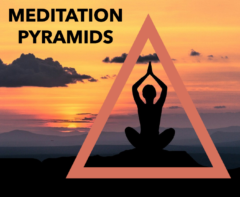The Benefits of Meditation for Healthy Aging: A Guide to Better Mind, Body, and Spirit
As we age, maintaining both mental and physical health becomes more important than ever. One of the most effective ways to support healthy aging is through regular meditation. Research shows that meditation can help older adults live longer, healthier lives by reducing stress, improving cognitive function, and enhancing emotional well-being. In this article, we’ll explore the powerful benefits of meditation for seniors and how it can play a vital role in promoting healthy aging.
Key Takeaways
- Meditation can help reduce stress, lower blood pressure, and improve sleep quality in older adults.
- Mindfulness meditation is linked to improved cognitive function, memory retention, and emotional resilience in seniors.
- Regular meditation supports immune health, reduces inflammation, and combats age-related cognitive decline.
- Meditation practices such as mindfulness and guided visualization help seniors feel more connected to themselves and others.
Why Meditation Matters for Healthy Aging
Meditation plays a crucial role in the aging process by helping to maintain both mental clarity and emotional stability. As we age, our bodies and minds undergo various changes, and practices like meditation can make these transitions smoother. By cultivating mindfulness, seniors can experience improved physical, mental, and emotional well-being—essential for enjoying their later years.
The Physical Benefits of Meditation for Seniors
Meditation isn’t just good for your mind—it’s great for your body too. Older adults who practice meditation regularly may notice the following benefits:
- Improved Heart Health: Meditation helps lower blood pressure and reduce the risk of cardiovascular disease. A 2018 study found that meditation can significantly improve heart health in older adults by promoting relaxation and reducing stress hormones.
- Pain Management: Meditation techniques like mindful breathing have been shown to alleviate chronic pain. This can be particularly helpful for seniors with arthritis or other conditions that cause physical discomfort.
- Better Sleep Quality: Meditation promotes relaxation, which can help seniors fall asleep faster and experience more restorative sleep. This is especially important, as quality sleep tends to decline with age.
- Stronger Immune System: Meditation reduces inflammation, a major contributor to many age-related health issues. By decreasing stress and enhancing immune function, meditation can help seniors fight off infections and maintain overall health.
Mental and Emotional Well-being Through Meditation
Meditation helps seniors maintain a positive outlook and cope with the challenges of aging. Here are some key emotional and mental health benefits:
- Reduced Stress and Anxiety: Mindfulness meditation has been shown to lower anxiety and stress levels, which can otherwise accelerate the aging process. With regular practice, older adults can feel calmer and more in control of their emotions.
- Enhanced Memory and Cognitive Function: Meditation has been linked to better memory retention and improved cognitive functioning in older adults. Studies show that meditation can help preserve gray matter in the brain, which is crucial for cognitive abilities like memory, learning, and decision-making.
- Boosted Emotional Resilience: Meditation fosters greater emotional resilience, helping seniors cope with difficult emotions like sadness, grief, or loneliness. By creating a sense of inner peace and contentment, meditation can help older adults stay emotionally balanced.
Meditation and Longevity: Can It Help You Live Longer?
Meditation is not only beneficial for reducing stress; it may also increase longevity. A growing body of research suggests that meditation can have a profound impact on how we age. By reducing stress hormones like cortisol, meditation helps protect the body from damage caused by chronic stress. Lowering stress levels can help prevent or manage conditions such as hypertension, diabetes, and dementia, contributing to a longer, healthier life.
Meditation and Cognitive Health: Combatting Age-Related Decline
As we age, cognitive decline is a common concern. Alzheimer’s and other forms of dementia are becoming increasingly prevalent among older adults. Meditation offers a natural, drug-free approach to protecting brain health:
- Preserves Brain Function: Regular meditation has been found to help preserve gray matter in the brain, which is essential for memory and cognitive processing. UCLA research revealed that seniors who meditate consistently show less cognitive decline than those who don’t.
- Enhances Focus and Attention: Meditation improves attentional control, which tends to decline with age. By training the brain to focus on the present moment, meditation helps seniors sharpen their attention and stay mentally alert.
- Improves Learning and Problem-Solving: Studies indicate that meditation can boost learning and problem-solving abilities, even in older adults. By cultivating mindfulness, seniors can stay mentally active and engaged in life.
Meditation Techniques for Elderly Wellness
There are many meditation practices that are suitable for seniors, regardless of their physical ability. Here are some meditation techniques that can promote wellness in older adults:
- Guided Visualization: This type of meditation involves mentally picturing calming scenes, such as a peaceful beach or a tranquil forest. It has been shown to reduce anxiety and improve mood, making it a great option for seniors experiencing stress or depression.
- Seated Meditation: Seniors who experience pain or discomfort from conditions like arthritis can benefit from seated meditation. This practice allows them to relax while sitting comfortably and focusing on their breath, helping to manage pain and stress.
- Mindful Movement: Tai Chi and yoga incorporate slow, deliberate movements with mindful breathing. These practices are excellent for improving balance, flexibility, and mobility, as well as promoting mental relaxation.
- Breathing Techniques: Deep breathing exercises, such as diaphragmatic breathing or the 4-7-8 technique, can help reduce stress, lower blood pressure, and improve lung function. These techniques can be easily incorporated into daily routines.
Mindfulness Practices for Seniors
Incorporating mindfulness into daily activities can make a big difference in the lives of seniors. Here are some simple mindfulness techniques that seniors can practice every day:
- Mindful Walking: Focus on each step and the sensation of walking, helping to calm the mind and improve focus.
- Mindful Eating: Pay attention to the taste, texture, and smell of each bite, which can help promote healthy eating habits and enhance enjoyment of food.
- Mindful Breathing: Take deep, slow breaths, focusing on the rhythm of the breath. This can help alleviate anxiety and promote relaxation.
- Gardening: Engaging in activities like gardening helps seniors stay active while being fully present in the moment, which has been shown to reduce depressive symptoms and improve mental health.
Promoting Healthy Aging through Yoga and Meditation
Combining yoga and meditation is a powerful way to enhance both physical and mental health as we age. Yoga increases flexibility, balance, and strength, while meditation provides the mental clarity and emotional calm needed to navigate life’s challenges. Together, they support overall well-being and contribute to healthy aging.
Yoga and meditation practices have been linked to reduced inflammation, better brain health, and improved quality of life for seniors. In fact, a 2019 study found that yoga helped older adults reduce the physical effects of aging, while meditation improved cognitive functioning and emotional health.
Conclusion: Meditation for Healthy Aging
As we age, the benefits of meditation become more evident. By incorporating meditation into daily life, seniors can experience a multitude of physical, mental, and emotional benefits that support healthy aging. Meditation not only reduces stress and anxiety but also improves cognitive function, enhances emotional resilience, and promotes physical health.
With its ability to lower blood pressure, manage pain, improve sleep, and protect the brain from age-related decline, meditation is a valuable tool for anyone looking to age gracefully. Whether you’re new to meditation or have been practicing for years, it’s never too late to start. Make meditation a part of your daily routine, and enjoy the many benefits it brings for healthy aging.



Hi Alan,
This article on the benefits of meditation for healthy aging offers valuable insights into how meditation can support seniors in maintaining their mental, physical, and emotional health. Meditation’s role in reducing stress, managing chronic pain, and improving sleep is especially relevant for older adults, who may face unique health challenges as they age.
The section on cognitive benefits stands out, as it highlights how regular meditation can help preserve brain function, improve memory, and slow down cognitive decline. For those concerned about Alzheimer’s or dementia, these findings are encouraging. It’s fascinating to see that meditation can support longevity, not only by lowering stress levels but also by fostering resilience and emotional stability—qualities that help seniors navigate life’s transitions more gracefully.
The practical tips on different meditation techniques, from guided visualization to mindful movement like yoga, make it accessible for seniors at any level of mobility. This comprehensive approach underscores how meditation can become a holistic tool, enriching both daily life and long-term well-being. For anyone seeking to age gracefully, meditation truly offers a gentle yet powerful path forward.
Cheers
John
Hi John
Thank you so much for your insightful feedback! I’m glad to hear that you found the article on meditation and healthy aging helpful. You’re absolutely right—the benefits of meditation for seniors are profound, especially when it comes to managing stress, chronic pain, and sleep issues, which can be particularly impactful as we age.
The cognitive benefits of meditation are indeed encouraging, especially for those concerned about Alzheimer’s or dementia. It’s exciting to think that something as accessible as meditation could play a role in preserving brain function and improving memory over time.
I’m also glad the practical tips resonated with you! Meditation can be adapted to anyone’s needs, and mindful movement, like yoga, can offer a gentle way to stay connected to the body, even for those with limited mobility. It’s wonderful to see how meditation can become a cornerstone of healthy aging, supporting both emotional resilience and physical health.
Thank you again for sharing your thoughts, and I hope this inspires many others to incorporate meditation into their lives as a tool for aging gracefully and maintaining well-being.
kindest regards
Alan
As someone who has experienced the transformative effects of meditation firsthand, I found your article is insightful and affirming. Your exploration of how meditation enhances cognitive function, emotional well-being, and physical health resonates deeply with my own journey. Incorporating mindfulness into daily routines has not only sharpened my mental clarity but also fostered a profound sense of inner peace.
Your emphasis on the accessibility of meditation, regardless of age, is particularly encouraging. It’s heartening to see such a comprehensive guide that empowers individuals to take charge of their aging process through mindful practices. Could you delve deeper into specific meditation techniques that are particularly beneficial for seniors? Thank you for shedding light on this vital topic.
Thank you for your thoughtful and inspiring feedback! I’m so glad the article resonated with your personal journey and affirmed the profound benefits of meditation. It’s truly wonderful to hear how mindfulness has sharpened your mental clarity and brought inner peace—such transformative effects make the practice invaluable.
To address your question about meditation techniques particularly beneficial for seniors, here are a few practices I’ve found to be especially impactful:
Guided Meditation: Seniors often find guided meditations helpful, especially those tailored to relaxation, gratitude, or healing. These sessions provide a gentle structure and can ease them into mindfulness without feeling overwhelmed.Loving-Kindness Meditation (Metta): This technique fosters emotional well-being by cultivating feelings of compassion and connection, which can be deeply nourishing during later stages of life.Body Scan Meditation: Ideal for seniors with physical discomfort, this practice helps tune into bodily sensations and promotes relaxation, supporting physical health and stress relief.Breath Awareness: A simple yet powerful technique that anchors attention to the breath, helping to reduce anxiety and enhance focus.Chair Yoga Meditation: Combining gentle movement with mindfulness, this practice is excellent for those with limited mobility.
Would you like more in-depth guidance on any of these techniques? I’d love to provide additional resources or share step-by-step instructions!
Best regards,
Alan